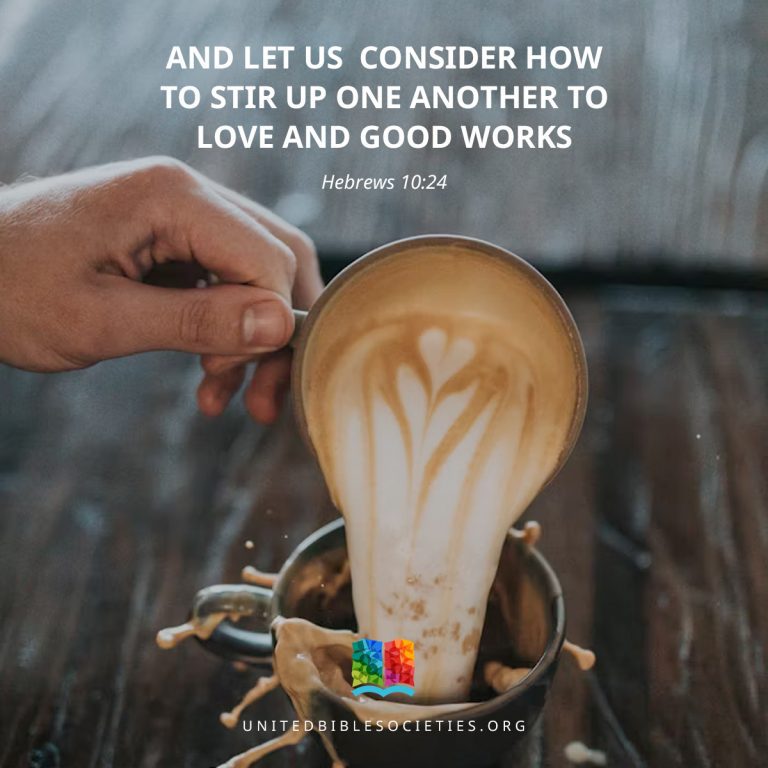1 Every high priest is appointed to help others by offering gifts and sacrifices to God because of their sins. 2 A high priest has weaknesses of his own, and he feels sorry for foolish and sinful people. 3 This is why he must offer sacrifices for his own sins and for the sins of others. 4 But no one can have the honor of being a high priest simply by wanting to be one. Only God can choose a priest, and God is the one who chose Aaron.
5 This is how it was with Christ. He became a high priest, but not just because he wanted the honor of being one. It was God who told him,
“You are my Son, because today
I have become your Father!”
6 In another place, God says,
“You are a priest forever
just like Melchizedek.”
7 God had the power to save Jesus from death. And while Jesus was on earth, he begged God with loud crying and tears to save him. He truly worshiped God, and God listened to his prayers. 8 Jesus is God's own Son, but still he had to suffer before he could learn what it really means to obey God. 9 Suffering made Jesus perfect, and now he can save forever all who obey him. 10 This is because God chose him to be a high priest like Melchizedek.
Warning against Turning Away
11 Much more could be said about this subject. But it is hard to explain, and all of you are slow to understand. 12 By now you should have been teachers, but once again you need to be taught the simplest things about what God has said. You need milk instead of solid food. 13 People who live on milk are like babies who don't really know what is right. 14 Solid food is for mature people who have been trained to know right from wrong.
1 Rɔ-asa reere-reere rɔppa rǝthi kahana rǝṯirsi alla-na ki-lizi-nǝ leeŋen ethi ǝkkici Allah ŋothɽor ki-lɔɔbi leeŋen, ethi unducci Allah kwomne kworo, nǝ ethi ǝvicǝ haḏaaya nǝ kiraama mindaŋ mǝ ŋikiya fivrinni kithaay. 2 Nǝ ŋundu ki-rogɽo ruuŋwun nɔŋwɔni kwajlinna tok, e-ta ǝṯɔŋw-mǝ ǝthi ŋɔma ethisi ṯiici naana jiɽeem kila lir yǝɽiyǝŋ lǝṯisi ǝkkiki pir-pir. 3 Nǝ kaka najla ŋgwɔ ki-rogɽo ruuŋwun, ǝṯɔŋweere undundu kwomne kworo kwir kiraama kǝthi ŋikiya ŋǝthi lizi dak mac, laakin kwǝthi ŋikiya ŋǝthi rogɽo ruuŋwun tok. 4 Kwende kweere kwǝṯi alla rogɽo ruuŋwun ṯiiɽǝthi-nǝ ethoro rǝ-iis rɔppa rǝthi kahana, laakin nǝ Allah wǝṯi ɔrnɔṯi ŋunduŋw, kaka-ṯǝ Haaruun-ŋwɔ.
5 Nǝ Kwɔrɔstɔ tok nɔŋweere piŋi rɔgɽo ruuŋwun mac ethoro Rǝ-iis Rɔppa rǝthi kahana, laakin nɔŋworo ŋgwa kwǝllinǝ kwǝccǝ ŋunduŋw-ŋwɔ:
“A kwir Tɔr tiinyi; nyii kwɔmoro Ṯarnyalɔ aŋwɔnɔ.”
6 Nɔŋwsaaɽi nɔŋwsandasi kǝzir wir ter kwokwony nɔŋwaarɔŋw:
“Ŋa kwɔrɔɔthatha kaahin lur,
nizaam-gi kwǝthi Mǝlikii-saaḏig.”
7 A-naani-tǝ Yǝcu kinnǝni kwɔmiithɔ aŋna-yi wuuŋwun ki-ṯurmun-nǝ, nɔŋwaari kiyiiriny mindaŋ nɔŋw uṯici Allah-lɔ kwɔɔvɔna ŋɔmmaŋi ŋwal-ŋi yǝy-yi, wǝthi ŋɔma ethi kilǝthi ŋunduŋw ŋiɽany naana. Nǝ kaka nǝjlinnǝ ŋgwɔ ki-rogɽo nɔrɔ-ŋgwɔ kwǝthi Allah tok, nǝ Allah niŋnaci. 8 Laakin, nɔrɔŋw-va kinnǝni Tɔr tǝthi Allah tok, nɔŋwaari @aillima ethi niŋnithi ṯirǝŋinnǝ-thi. 9 Nǝ mɔŋw ṯimmayini dap tǝ, nɔŋworo ṯuwǝ ṯǝthi ŋiglǝthǝ ŋǝṯi nannatha dok-dok ŋǝthi kila tatap lǝṯi niŋnithici ŋunduŋw, 10 e-ta nǝmǝ Allah ruusi Rǝ-iis Rɔppa rǝthi kahana, nizaam-gi kwǝthi Mǝlikii-saaḏig.
Ṯɔɔraca ethi nannatha ki-ṯǝmminǝ-nǝ.
11 Ŋinaanɔ ŋittǝzir ŋǝthisi andasi ŋǝthi ŋiɽaŋal ŋɔ, laakin nǝr ferlle beṯṯen ethisi dugwɽǝci ŋaaŋwɔsi-na, kaka nǝṯir-gweere ǝnḏi ki-ŋwɔɽa-na ŋwaalɔ mac. 12 Ŋɔvthanna-mi ŋarna ki-ŋwɔɔmɔr-la-ṯa ŋwɔ ya ǝŋgoro mɔ@allimiin kirem, laakin ŋaaŋa kila-ta kǝnnǝ linaŋna kwizi kwette ethǝccǝ ŋaaŋwɔsi @allima ḏuruusǝ ṯir ŋwɔɽa ṯǝthi ŋiɽaŋal ŋǝthi Allah. Nǝ ki-lɔɔbi lǝthi-li yee ethneya wɔfirllina, laakin nǝtǝ nanni linaŋna ethi yǝthǝ ŋan lǝlu-ttuk. 13 Kweere kwǝṯi naŋni ethi ruusi ŋan ethne wuuŋwun tǝ, nɔŋw-tǝ oro kinnǝni kwokwɔɽony, kwiti kwilŋithisi ŋǝni ŋirllalɔ nǝ ŋigii tok mac. 14 Laakin ethne wufirllina wir wǝthi kila limǝ peŋe, kila limǝ iirǝnni ŋiɽaŋali kii nǝrsi elŋe ŋisaaw nǝ ŋigii tok.

